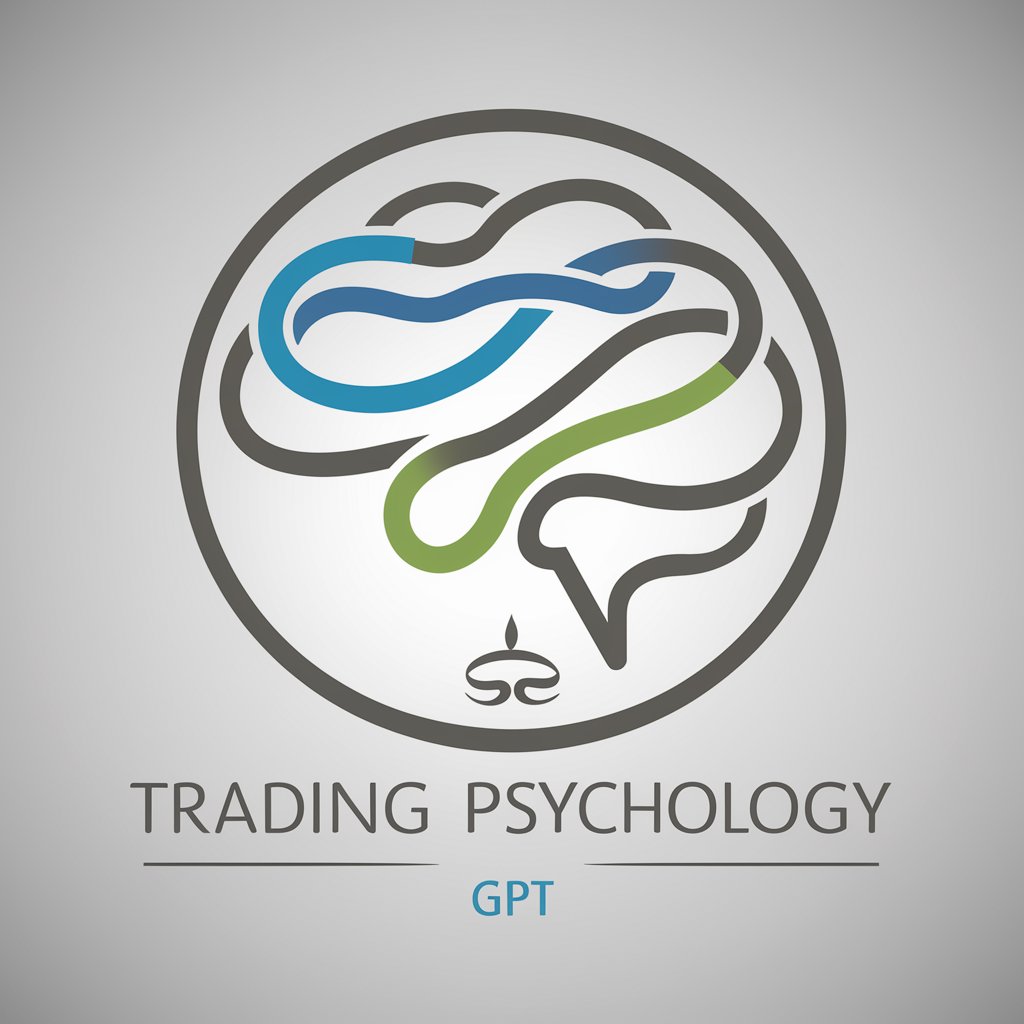
Trading Psychology - trading mental resilience tool

Welcome! Ready to master your trading psychology?
Master the market with AI-powered trading insights
What are the common emotional challenges faced by day traders?
How can traders manage the fear of missing out (FOMO)?
What strategies can help traders overcome analysis paralysis?
Can you explain the impact of overconfidence on trading decisions?
Get Embed Code
Introduction to Trading Psychology
Trading Psychology refers to the emotional and psychological factors that influence the decision-making processes of traders in financial markets. It is an essential aspect of trading that addresses how psychological factors such as fear, greed, confidence, and stress impact trading behavior and decision-making. A key component of Trading Psychology involves understanding and managing these emotions to prevent them from leading to poor trading decisions or strategies. For example, a trader might experience intense fear after a series of losses, leading to hesitation in executing new trades even when favorable opportunities arise. This scenario illustrates the need for emotional resilience and psychological strategies to maintain objectivity and discipline in trading. Powered by ChatGPT-4o。

Main Functions of Trading Psychology
Emotional Regulation
Example
A trader experiences a large, unexpected loss and feels an urge to 'make back' the loss by taking additional high-risk trades. Through emotional regulation strategies, such as pre-set trading rules and self-awareness techniques, the trader avoids impulsive decisions and focuses on rational, strategy-based trading.
Scenario
This function is particularly useful in high-volatility markets where emotional responses can lead to rapid and often detrimental decisions.
Decision-making support
Example
A trader struggles with analysis paralysis, overwhelmed by too many indicators and conflicting information. By applying cognitive behavioral techniques and focusing on a simplified set of key performance indicators, the trader can make more timely and less emotionally charged decisions.
Scenario
Effective in situations where traders face information overload and need to streamline their decision-making processes to avoid missing out on optimal trading opportunities.
Resilience Building
Example
During a market downturn, a trader feels demotivated and considers quitting after a series of unsuccessful trades. Resilience building activities, such as reviewing historical trading patterns and successes, can help the trader regain confidence and persistence.
Scenario
Useful in long-term trading strategies where enduring through cycles of market ups and downs is crucial for overall success.
Ideal Users of Trading Psychology Services
Novice Traders
New entrants in the trading world often struggle with the emotional ups and downs of trading due to lack of experience. Trading Psychology can provide them with foundational skills in emotional management and disciplined decision-making, helping them to navigate the complexities of the market effectively.
Professional Day Traders
Experienced traders face the challenge of maintaining their performance under stress and high stakes. Advanced psychological tools and techniques offered by Trading Psychology can help them refine their strategies, manage stress, and optimize their decision-making process.
Portfolio Managers
Portfolio managers who oversee large baskets of investments can benefit from Trading Psychology by enhancing their ability to remain objective and resist market pressures, thereby improving their overall management strategies and protecting their clients' investments.

How to Use Trading Psychology
Start your journey
Visit yeschat.ai to begin a free trial of the Trading Psychology tool without needing to log in or subscribe to ChatGPT Plus.
Identify your needs
Determine specific trading challenges you face, such as fear of missing out, overtrading, or emotional decision-making, to focus on areas where Trading Psychology can assist.
Engage with the tool
Interact with the tool by asking specific questions about trading scenarios, decision-making processes, and strategies to handle psychological challenges in trading.
Apply insights
Implement the strategies and techniques provided by Trading Psychology in your daily trading activities to enhance decision-making and emotional resilience.
Review and adjust
Regularly assess the effectiveness of the insights gained and adjust your trading strategies accordingly to continuously improve your trading performance.
Try other advanced and practical GPTs
Mail Mate
Refine Your Emails with AI Power

Medical Advice
Empowering your health journey with AI

Artificial Imagination
Crafting the Unthinkable with AI

Imagination Sketcher
Bring Your Stories to Life with AI

Imagination Grenade
Unleash Creativity with AI

Imagination Spark
Sparking Imaginations with AI

Psychology Mentor
Empowering Your Psychological Understanding with AI

Psychology Wizard
Empowering minds with AI-powered psychology

Dark Psychology
Unlock the secrets of the human mind.

Vacation Planner
Craft Your Journey with AI

Vacation$$$
AI-Powered Vacation Financial Planner

Vacation Optimizer
Maximize Your Time Off with AI

FAQs about Trading Psychology
What is Trading Psychology?
Trading Psychology refers to the emotional and cognitive aspects that affect an investor's decision-making process, and the study of behavior as it relates to traders implementing their investment decisions.
How can Trading Psychology help manage FOMO?
Trading Psychology provides strategies to recognize and manage FOMO (Fear of Missing Out) by encouraging structured decision-making and emphasizing historical market analysis over emotional reactions to market movements.
Can Trading Psychology improve my trading results?
While Trading Psychology is not a guarantee for profit, it can significantly improve your decision-making by reducing emotional biases and providing tools to better manage psychological stressors inherent in trading.
What are some common strategies used in Trading Psychology?
Common strategies include setting clear trading goals, maintaining a trading journal to reflect on decisions, and developing a personal trading plan to mitigate impulsive decisions driven by market 'noise'.
How often should I consult Trading Psychology?
Consult Trading Psychology regularly, especially when encountering new trading scenarios or emotional challenges, to continuously refine your strategies and ensure they align with your trading goals and risk tolerance.





